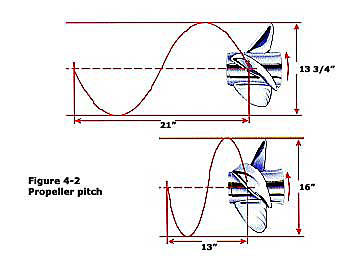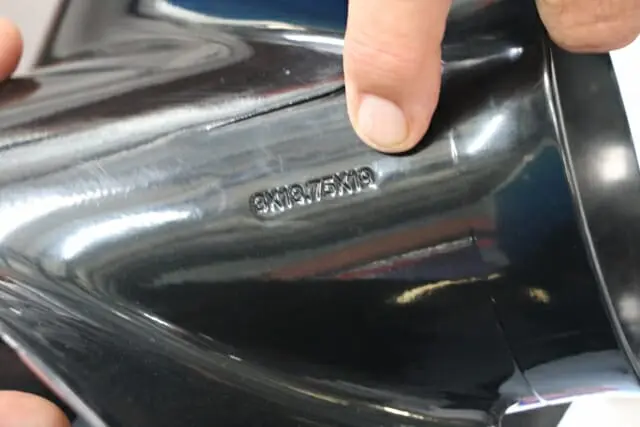When it comes to the performance of your boat, the propeller plays a vital role. One key aspect of a propeller that affects your boat’s speed and efficiency is its pitch. Understanding how pitch works can help you make informed decisions about selecting the right propeller for your boating needs. Here’s a simple explanation of what propeller pitch is and why it matters.
What is Propeller Pitch?
Propeller pitch refers to the distance a propeller would move in one full rotation if it were moving through a solid medium, similar to how a screw moves through wood. It is typically measured in inches. For example, a propeller with a 19-inch pitch would theoretically move the boat forward 19 inches with each complete revolution of the propeller.

How Pitch Affects Boat Performance
- Speed and Acceleration:
- Lower Pitch (e.g., 15 inches): A propeller with a lower pitch provides better acceleration and more power at lower speeds. This is because it takes smaller “bites” of water, allowing the engine to reach higher RPMs (revolutions per minute) more quickly.
- Higher Pitch (e.g., 21 inches): A propeller with a higher pitch is designed for higher top speeds. It takes larger “bites” of water with each rotation, which can propel the boat faster at the expense of acceleration.
- Engine Load and Efficiency:
- Proper Pitch Match: Choosing the correct pitch ensures that your engine operates within its optimal RPM range. An engine running at the correct RPM is more efficient, using less fuel and reducing wear and tear.
- Incorrect Pitch: If the pitch is too high, the engine may struggle to reach its optimal RPM, leading to poor acceleration and potential engine strain. Conversely, a pitch that is too low can cause the engine to over-rev, reducing fuel efficiency and increasing the risk of engine damage.
- Fuel Consumption:
- Optimized Pitch: A propeller with the right pitch helps achieve better fuel economy. It ensures that the engine operates efficiently, delivering the best balance between speed and fuel consumption.

Choosing the right propeller pitch involves considering the type of boating you do most often. If you engage in activities that require quick acceleration, like waterskiing or wakeboarding, a lower pitch propeller might be ideal. For cruising or high-speed boating, a higher pitch propeller could be more suitable.
Consulting your boat’s manufacturer guidelines and working with a knowledgeable marine technician can help you determine the best pitch for your specific boat and engine combination.
Conclusion
The pitch of a boat propeller is a crucial factor in determining your boat’s performance, efficiency, and fuel consumption. Understanding how pitch works and selecting the right propeller can make a significant difference in your boating experience, ensuring you get the best performance from your vessel. Whether you need better acceleration or higher top speeds, choosing the correct pitch is key to achieving your boating goals.